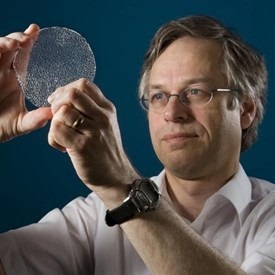Eric Wolff FRS, Chair of the Royal Society’s Climate Change Working Party, questions if the recently agreed COP28 deal is progress or just hot air.

The COP28 deal, coined the ‘UAE consensus’, was unanimously approved by 198 countries last week. But listening to coverage from the UK, it was hard to tell if it represented a step forward or backwards in our efforts to limit climate change.
The context for COP28 was not very promising. 2023 is certainly going to be the warmest year on record. Emissions of carbon dioxide are still increasing, and the window to reduce them to ‘net zero’ in time to avoid dangerous climate change - the Paris Agreement set a goal to limit global warming to well below two degrees above pre-industrial levels - is closing. Furthermore, in the last year, nations seeking energy security in the face of the geopolitical situation in both Russia and the Middle East have taken actions that make it more difficult to reach their self-imposed targets for emissions reductions.
So, could a COP led by a major oil producer produce a new impetus towards both ambition and action? The UAE consensus runs to 196 paragraphs, but most of the ensuing discussion has concentrated on a single sub-paragraph (28d) which “calls on parties to contribute to the following global efforts…. transitioning away from fossil fuels in energy systems, in a just, orderly, and equitable manner, accelerating action in this critical decade, so as to achieve net zero by 2050 in keeping with the science”.
I would like to work backwards in that statement. First, the science definitely says that if we want to stop the climate from warming, we have to reach net zero. Doing it by 2050 seems feasible, although that is probably not early enough to avoid surpassing the Paris targets. And with only 27 years left it is clear that this decade is critical. Given all that, it should not have been too hard for delegates to agree that parties must stop using fossil fuels in any significant quantity by then if they are to achieve what it decrees in the second half of the sentence. But apparently, some nations have been so much in denial that it is a breakthrough that the phrase “fossil fuels” is mentioned at all, even in the context of such weak phrases as ‘transition’ and ‘contribute’.
Because scientists have been saying this for so many years, we are, as you can tell, not very impressed. But if this language can be built on to stimulate more action, then there could yet be progress. The meeting came up with promising and ambitious targets to triple renewable energy capacity, greatly improve energy efficiency, and substantially reduce methane emissions by 2030.
However, in the announcements made by individual nations, it was hard to see how any of this would be achieved. Indeed, the UAE consensus recognises that the pledges (nationally determined contributions) made so far by different nations are insufficient to achieve the Paris goals, and that there is an ‘implementation gap’ because the policies implemented so far will not achieve what has been pledged.
Outside the main consensus document, there was some progress with limited groups of nations agreeing joint action on various topics including phasing out coal, stopping reforestation, and reducing methane emissions during fossil fuel production. The meeting finalised the terms of a “loss and damage” fund to help developing nations cope with the consequences of climate change.
But it seems that what is really needed is not to tweak the wording of targets but to start seriously deploying the systems, technologies and policies that would allow the targets to be met. There is no single solution to sustainably and affordably meeting the world’s energy requirements in the next century, but we do know what most of the solutions might be.
The Royal Society does not tell governments what policies to adopt. However now that both the UK and the COP system have set themselves a “Net Zero by 2050” target, we can assess whether promises, policies and actions are compatible with it. Many of the changes required for the UK, such as converting to electric vehicles, changing the way we heat our houses, and revamping our power distribution grids to cope with large amounts of renewable energy, take time. A recent Royal Society report points out that the widespread use of renewables will require a large amount of energy storage, with hydrogen as the leading option for the UK. However, the scale of storage required has not yet penetrated national infrastructure plans.
It has taken 28 COP meetings for the world to accept the science of climate change, allowing it to state, ever so obliquely, the obvious. We now only have 26 COPs left to implement the equally compelling science that tells us how to solve the problem. My dream is that the UK and other like-minded countries really harness the brilliant science and technology we produce and show the rest of the world how to get the job done.

